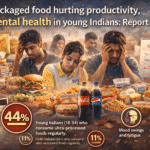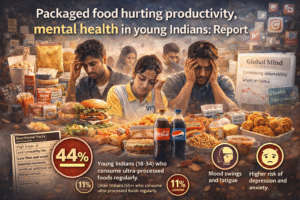As the world continues to recover from the immediate impact of the COVID-19 pandemic, a quieter yet persistent health crisis is taking shape—Long COVID. Affecting millions globally, Long COVID refers to lingering symptoms experienced weeks or even months after initial recovery. New research is now delving into a surprising culprit behind this phenomenon: zombie cells.
What Are Zombie Cells?
Also known as senescent cells, zombie cells are damaged or aging cells that no longer divide but refuse to die. Instead, they release inflammatory substances that can disrupt nearby healthy cells. While the human body typically removes these cells naturally, a buildup can lead to chronic inflammation, which may be at the root of symptoms like chronic fatigue, muscle pain, and brain fog hallmarks of Long COVID.
New Insights from Stellenbosch University
Recent findings from Stellenbosch University in South Africa suggest a possible connection between COVID-19 infection and an increase in senescent cells. According to researchers, the body’s immune response to the virus could be triggering a cascade that accelerates the formation of these zombie cells. This may explain why some people suffer prolonged symptoms long after the virus has cleared from their bodies.
A Global Health Concern
Both the World Health Organization (WHO) and the United States Centers for Disease Control and Prevention (CDC) have acknowledged Long COVID as a serious public health issue. The CDC reports that nearly 1 in 5 Americans who had COVID-19 still experience Long COVID symptoms. This includes difficulty thinking or concentrating (commonly referred to as “brain fog”), depression, fatigue, and respiratory issues.
The WHO has called for continued global collaboration to better understand the causes and treatment of Long COVID, emphasizing the need for further research on its long-term neurological and physiological effects.
Why This Research Matters
Understanding the role of zombie cells in Long COVID could open the door to new treatments. Some biotech companies are already exploring senolytics drugs that selectively eliminate zombie cells, as a potential therapy for age-related diseases. Now, these compounds may also offer hope to Long COVID sufferers.
If this link is confirmed through larger studies, it could not only improve the lives of millions of post-COVID patients but also revolutionize our approach to treating chronic inflammatory conditions.
The Path Forward
As Long COVID continues to affect populations across the globe, experts stress the importance of early intervention, comprehensive care, and continued scientific inquiry. With collaboration between institutions like Stellenbosch University, WHO, and the CDC, a deeper understanding of this mysterious condition is gradually unfolding.
This evolving research reminds us that while the acute threat of the COVID-19 virus may have subsided, its aftershocks both biological and societal are far from over.











More Stories
Packaged food hurting productivity, mental health in young Indians: Report
Do only vegetarians suffer from vitamin B12 deficiency? Doctor busts 5 myths and explains how supplements work
Amul, Country Delight & Mother Dairy milk ‘Fail Quality test’, coliform bacteria levels exceed FSSAI limits.